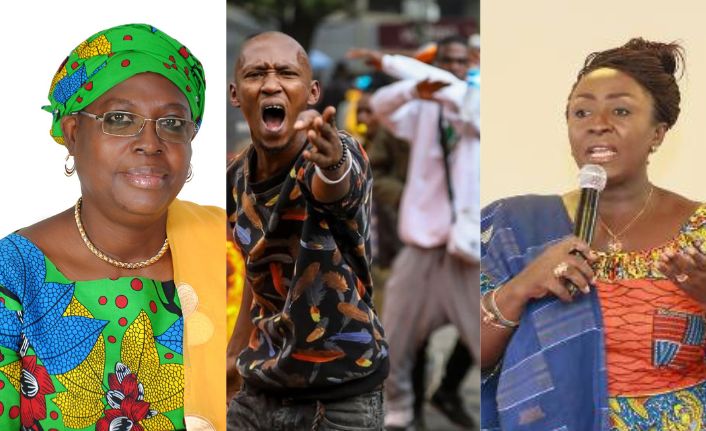Two prominent female minority MPs, Abla Dzifa Gomashie and Hajia Zurewa Ibrahimah, have voiced their apprehensions regarding the possibility of youth unrest in Ghana. Drawing parallels to the recent invasion of Kenya’s Parliament by rioting youth, the MPs warned that similar disturbances could occur in Ghana if the country’s economic conditions do not improve.
Economic Hardship and Rising Tensions
Ghana, like many other nations, is grappling with economic challenges that have significantly affected its population. High inflation rates, unemployment, and the rising cost of living have left many Ghanaians struggling to make ends meet. These issues have led to increased frustration and discontent among the youth, who are particularly vulnerable to the impacts of economic instability.
Abla Dzifa Gomashie and Hajia Zurewa Ibrahimah have highlighted these economic pressures as a catalyst for potential unrest. They argue that if the government does not take swift and effective measures to address these issues, the likelihood of public demonstrations and possibly even violent confrontations could escalate.
Lessons from Kenya
The recent events in Kenya serve as a stark warning. In a dramatic display of frustration and anger, Kenyan youth stormed their Parliament, demanding immediate action from their leaders to address economic grievances. The invasion was a direct response to the perceived indifference of the political elite towards the plights of ordinary citizens.
Gomashie and Ibrahimah believe that Ghana is not immune to such scenarios. They stress that the growing discontent among Ghanaian youth could manifest in similar actions if their grievances are not addressed. The MPs urge the government to learn from Kenya’s experience and take proactive steps to engage with the youth and address their concerns.
The Role of Government and Stakeholders
To prevent such unrest, the MPs propose a multifaceted approach. They emphasize the need for:
1. Economic Reforms: Implementing policies that create jobs, reduce inflation, and lower the cost of living. This includes supporting small and medium-sized enterprises, which are crucial for economic growth and employment.
2. Youth Engagement: Establishing platforms for meaningful dialogue between the government and the youth. This can help in understanding their concerns and involving them in decision-making processes.
3. social Support Programs: Enhancing social safety nets to support vulnerable populations. Programs that provide financial assistance, education, and healthcare can alleviate some of the pressures faced by struggling families.
4. Transparency and Accountability: Ensuring that government actions are transparent and that leaders are held accountable. This can build trust between the government and the citizens.
A Call to Action
Gomashie and Ibrahimah’s warning is a call to action for the Ghanaian government and all stakeholders. The current economic situation requires urgent attention to prevent a potential escalation of unrest. By addressing the root causes of discontent and involving the youth in the nation’s development, Ghana can avoid the turmoil that has plagued other countries in similar circumstances.
In conclusion, the concerns raised by these two MPs highlight the pressing need for comprehensive and inclusive economic policies. The government must act swiftly to ensure stability and foster a sense of hope and opportunity among the youth. Failure to do so could lead to a scenario reminiscent of the recent upheaval in Kenya, with serious implications for Ghana’s social and political fabric.

